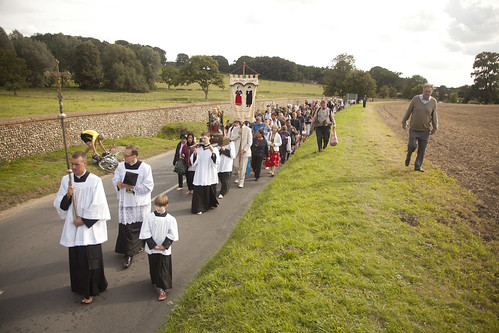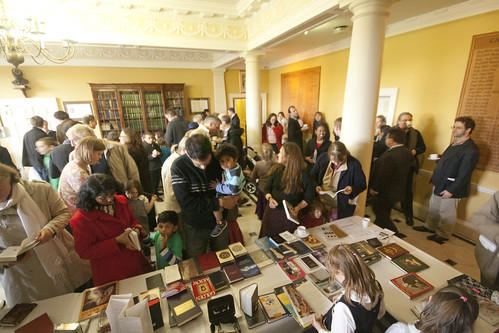
'Lay Apostolate' series
Part 1:
Where next?
Part 2:
What do we need?
Part 3:
The Lay Apostolate: a proposal
Part 4:
Why not existing groups?
Part 5:
The Lay Apostolate and the Internet
I'm currently reading Robert Putnam's 'Bowling Alone', about the decline of what he calls 'civil society'. All sorts of groups which put people in touch with each other - religious, charitable, recreational - had a boom in the first half of the 20th century, and went into decline in the second half. The networks they provided were hugely important for facilitating every kind of interaction, business or social, because they expanded the number of people each person knew and trusted. They created 'social capital', in addition to the good work many of them did explicitly, such as hospital visiting or whatever.
This is part of the background to the difficulties we have witnessed in the Church, and the sociological changes effecting organisations like the Church must be separated from ideological and other issues.
The kind of groups which did so well in the mid century, and have been having such a lean time since then, are groups where people meet up regularly: for card games, reading groups, feeding the homeless, sports, music, or anything. The parish system, and the guilds and sodalities which used to exist within parishes, are of course an example of this kind of group. To belong, you have to go along to face-to-face meetings. To really belong, you have to go along regularly, and go to extra meetings. This is something which people are much, much, less inclined to do today than 50 years ago.
Some reasons for this are very straightforward. Here are three:
1. The decline of population density: the move to the suburbs. The catchment area for a bowling club or parish of a given size increases, or the groups shrink. Not only are meetings less convenient, but membership of local groups is less likely to be reinforced by meeting the same people in the shops, schools, and so forth.
2. Other calls on people's time: not only do you have to travel further for your local group, but there are so many other things to do: not just home-based entertainment (notably the Telly), but work. Since the 1970s people have less leisure, they are worried about losing their jobs; they also have to commute further.
3. Geographical mobility: you can't put down local roots, make strong friendships based on locality, if you move every few years. Local groups are constantly disrupted by people coming and going; they can't develop long-term plans if key people keep disappearing.
The striking thing about these factors is that there is absolutely nothing we can do about them. We could in theory encourage people to live in cities close to their work and get an undemanding job, but it would be like encouraging water to flow uphill. (Actually Leo XIII did discourage the aspects of worldly ambition which were socially disruptive, such as urbanisation. Thinking about the social consequences of our life-plans, for ourselves, our families, and our communities, should be part of a Catholic outlook.)

This is a sociological nightmare for the parochial system, but Catholics do at least feel a strong motive to go to church on Sundays. For the lay apostolate, it has been a unmitigated disaster. Having traveled all the way to Sunday Mass to sit among strangers in a parish with which you feel little or no family or historic ties or loyalty, you trail home with invitations to a prayer group on Tuesday evening, a pro-life group on Wednesday evening, and a meeting of the fundraising committee on Thursday evening, and you say: no, I'd actually quite like to spend at least half an hour with the children, after my 9-to-5 day and an hour-long commute back from work. I don't blame you.
But I have a proposal, which may seem a little more attractive: to follow.









